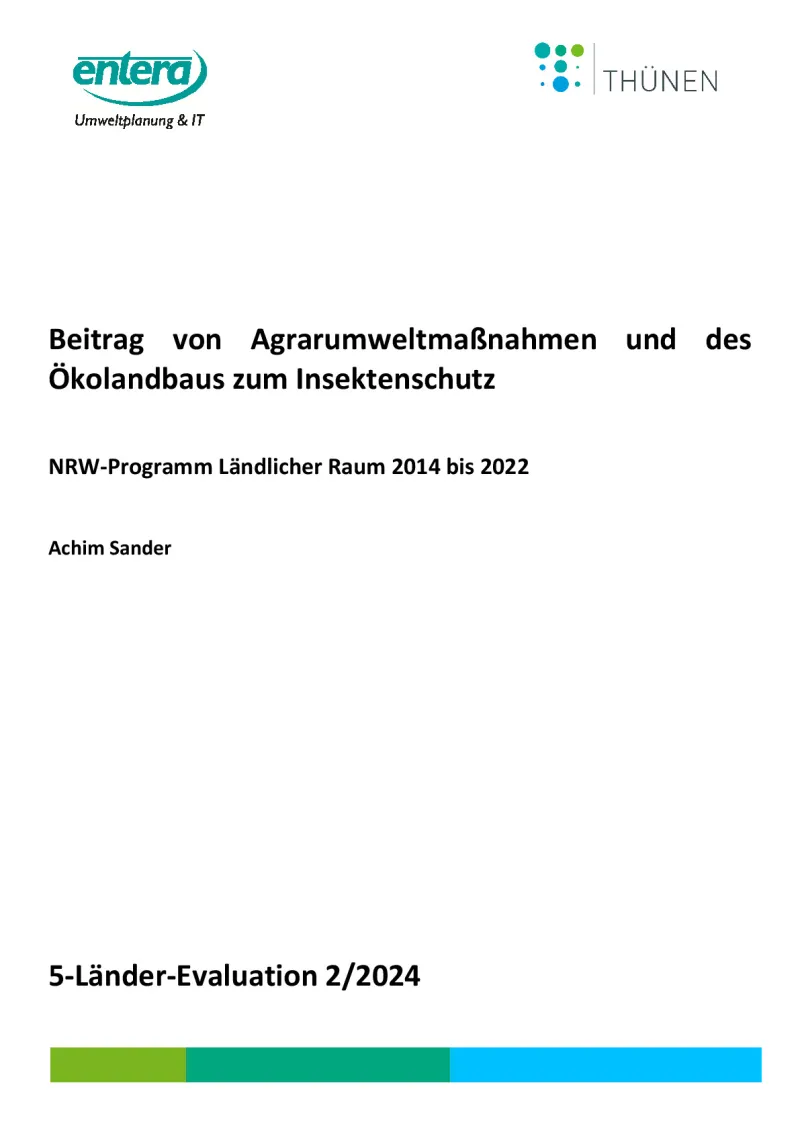Contribution of Agri-Environmental Measures and Organic Farming to Insect Protection in North Rhine-Westphalia
The report analyses the effects of agri-environmental and climate measures and organic farming on insects.
- Germany
- Environmental impacts


As part of the evaluation of the North Rhine-Westphalia Rural Areas Programme 2014 to 2022, a study was carried out in consultation with the responsible Ministry for Climate Protection, Environment, Agriculture, Nature Conservation and Consumer Protection (German: MKULNV) on the insect effectiveness of agri-environmental measures and organic farming.
The results of the analysis are included in the biodiversity impact evaluation (evaluation questions for priority area 4A and programme evaluation questions) of the North Rhine-Westphalia programme.
Since insects play an essential role in ecosystemic contexts for the conservation of overall biodiversity and for ecosystem services for humans, studies are being carried out for selected measures of the North Rhine-Westphalia programme (codes 10.1, 11 and 14.11) to determine what contribution they can make to insect conservation independently of their original objectives.
The data is based on a literature analysis of over 100 published articles, including 17 meta-studies, the evaluation of funding data, economic region and farm data as well as the analyses of measures and insects carried out on the Ecological Area Sample.
The evaluation of the AECMs offered in the North Rhine-Westphalia programme and of organic farming with regard to their insect protection potential shows very different results, which are highly dependent on their specific implementation and use, their location and their previous use. This study is an initial assessment of the effects of the measures, based on assumptions about impact pathways and on analogies drawn from extensive examples in the literature. Due to the data situation, the results provide orientation, but not mathematical accuracy, even though numerical and proportional values were used.
The measures analysed are effective (to varying degrees), but are not very targeted towards insects. Overall, it can be assumed that the measures do not reach enough area for long-term and widespread insect protection. In arable land in particular, the proportion of measures is very low. Many measures are not of high enough quality for effective insect protection (‘dark green’ in terms of insect protection). These quality deficits apply to both arable land and grassland.
Author(s)
Achim Sander
Resources
Documents
Contribution of agri-environmental measures and organic farming to insect protection
(PDF – 6.77 MB – 103 pages)